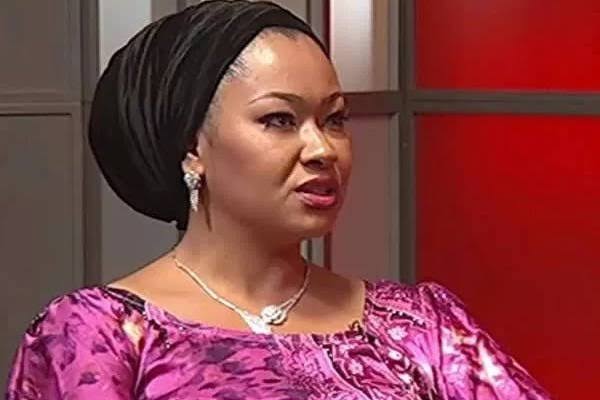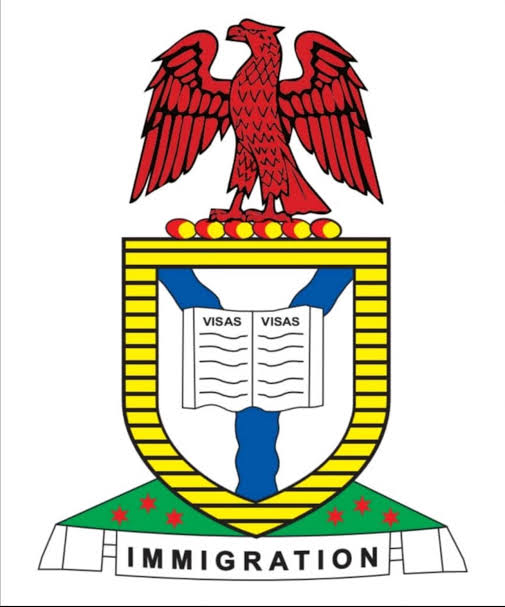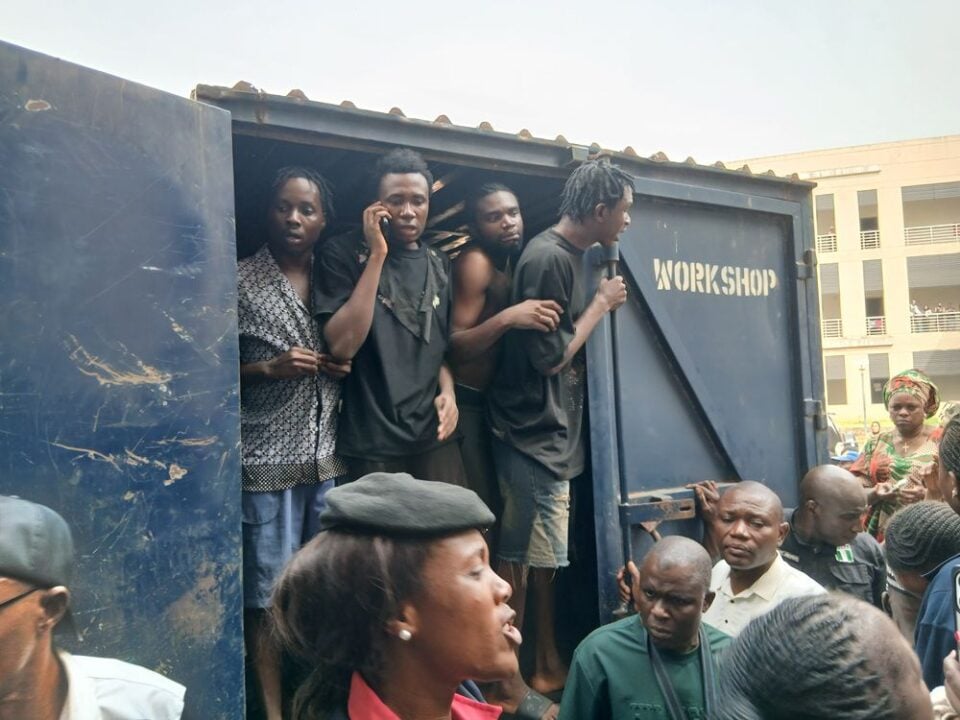The Nigerian foreign missions are currently facing a financial crisis following the delay in the release of their capital and overhead votes by the Federal Government.
Saturday PUNCH learnt that the overhead vote for the second half of 2023 which should have been paid since June was still pending, putting the missions in a dire strait.
It was reliably gathered that the diplomats and Foreign Service officers at the 109 Diplomatic Missions, which include 97 Embassies and 12 Consulates all over the world, are worried about the implication of the cash crunch on the operation of the missions and staff well-being.
Sources, who spoke to our correspondent on Friday, disclosed that many missions may not be able to meet their financial obligations to their staff members and local contractors in the coming weeks if the situation remains unchanged.
It was learnt that various financial obligations, including electricity, water, and sanitation bills, were already piling up.
Worried embassy staff members serving in Europe, Asia, and other parts of the world are reportedly sending distress messages to their colleagues at the ministry’s headquarters in Abuja.
A source said, “Overhead allocation to missions that ought to have been used for settling various utility bills, chancery rent, staff accommodation, electricity, sanitation, and water bills have not been paid by the Federal Government.
“The vote meant for the second half of the year ought to have been paid since June. Many missions have sent dispatches to the ministry but there was no response.”
This newspaper had reported the poor allocation to the diplomatic missions and the widespread complaints about the shortfall in budgetary votes which had severely hindered their operations.
Early this year, our correspondent learnt that the MFA released $270,000 for personnel overhead to a mission in Asia for January to June.
However, Saturday PUNCH learnt that only $164,000 instead of $270, 000 was remitted to the mission for the second half of the year, representing a shortfall of 41 per cent.
Though the foreign affairs ministry did not give reasons for the shortfall, there were suggestions that the government must have based the remittance on the current exchange rate pegged at about N900 per dollar.
“The truth remains that Nigerian Missions are not properly funded but even the gross inadequate funds provided in the 2023 Budget is now affected by the new exchange rate policy of floating the naira introduced by the Central Bank of Nigeria,” an official noted.
Explaining how the new forex rate had affected the remittance to the embassies, a diplomat said, “Missions that received $590, 000 and $383, 000 personnel allocation for the first half of the year were given $353,000 and $252,000, respectively, as personnel vote for the second half of the year.
“With the prevailing situation, most embassies may not be able to pay salaries and entitlements for officers, locally recruited staff members, and contractors or meet other financial obligations such as payment of rent and school fees for children, electricity, water, telephone, and security bills if the government continues to withhold the overhead and capital allocations.
“The implication is that if nothing is urgently done to salvage the situation, staff members of the embassies and consulates abroad would suffer financial embarrassment which would be inimical to the image of our country.”
Due to the inadequate overhead vote, most missions, it was gathered, usually divert the personnel vote to take care of staff accommodation and tuition for their children and wards.
A Foreign Service officer revealed that the FG had yet to pay the capital vote to his mission, noting that this had put the staff in a tight situation as they faced eviction from their landlords.
He explained that while some missions deal directly with the landlords, his mission preferred giving the money to the staff to pay their landlords.
Narrating his predicament on the phone, the FSO who spoke on condition of anonymity for fear of victimisation said, “Staff accommodation rent and their children’s tuition were meant to be paid from the overhead vote but this has not been done because the government has failed to release the money.
“Some of us had to borrow money from friends and families in Nigeria so that our landlords would not evict us. We pay rent monthly, so we had to deposit 12 cheques to cover one year and the banks would credit the landlord monthly.
“But if you don’t have money in your account, the bank may report you to their regulatory agency because it is a criminal offence to issue a cheque without cash backing. Many of our staff members have been evicted for not paying their rent. It happened in Budapest, Hungary, in 2021 when some Nigerian staff members were evicted from their apartments for failing to pay their rent.
“There are cases where diplomats borrow money to settle school fees and rents to avoid eviction. Some borrow from their friends in Nigeria and also from the Nigerian community or the local churches they attend in their country of service.
“Some officials have returned to Nigeria, yet they have not been paid their rent. In some situations, the embassies pay directly to the landlords, and some landlords may evict the embassy staff for not paying. In most cases, people use their salaries to pay for accommodation to avoid any embarrassing action from their landlords.”
Continuing, he added, “Most embassy buildings are still in dilapidated conditions because of poor funding by the Federal Government. The overhead meant for July to September is yet to be released. The over $150,000 personnel allocation recently released to our diplomatic mission can’t cover expenses from now to October unless the government quickly responds.
“And now that ambassadors have been recalled, they may feast on the available funds. Some may want to use the money to celebrate their last Independence Day in office.”
An official complained that the government has also not been paying the relocation allowance to officials newly posted to foreign missions from the MFA headquarters.
“The relocation fund meant for newly posted staff called ‘first 28 days allowance’ has not been paid. Most chanceries which were rented risked eviction if the rents were not paid,” he cautioned.
In November 2020, when the Chairman, the House Committee on Foreign Affairs in the 9th Assembly, Yusuf Yakubu, lamented the maltreatment of Nigerians abroad, the then Minister of Foreign Affairs, Geoffrey Onyeama, blamed it on the poor funding of the foreign missions.
Onyeama said the small budgetary allocations were affecting their effectiveness in responding to the expansive structure of diplomatic services.
In the 2023 Budget, the ministry and the missions were allocated N98.11bn for their operations.
Of the total amount, N62.30bn was for personnel cost, N31.12bn for overhead cost, and N4.68bn for capital expenditure.
In 2022, the personnel cost for the ministry and the mission was N49.22bn with 98 per cent releases made to the ministry.
The sum of N23.01bn was for the overhead of which 58 per cent of the ministry’s component had been released and the mission had received 100 per cent.
Also, 50 per cent of the N7.61bn earmarked for capital expenditures had been received by the ministry and the missions.
The MFA in 2021 earmarked N65.1bn for foreign missions, which was 78 per cent of the ministry’s N83.4bn budget.
In the preceding year, about N62bn was initially earmarked in the ministry’s N75.4bn budget for 2020 but the vote was revised downwards to N60.2bn due to the COVID-19 pandemic.
In 2019, the foreign missions’ allocation was N4.1bn out of the country’s proposed budget of N8.9trn, and in 2018, the foreign missions’ allocation was N11.3bn as the ministry proposed N83.3bn, a 13 per cent cut. At the time, the country’s budget proposal stood at N8.6trn.
Due to insufficient funds, the Federal Government announced it was shutting down its embassies in Sri Lanka, the Czech Republic, and the Republic of Serbia while another one was downsized.
When Saturday PUNCH contacted the Minister of Foreign Affairs, Amb Yusuf Tuggar, on the matter, his Special Adviser on Media and Communications Strategy, Alkasim Abdulkadir, reached out and asked our correspondent to get across to him during the week.
“The Minister of Foreign Affairs sent me your message regarding this inquiry. You can reach me during the week for feedback on this,” Abdulkadir wrote in a message sent to our correspondent.
Also, the Permanent Secretary, Amb Adamu Lamuwa, and the spokesperson for the ministry, Francisca Omayuli, did not respond to phone calls and messages seeking their comment on the financial challenges facing the missions.
But a retired diplomat, Mr Rashid Akinkuolie, advised the government to denominate the missions’ budgetary allocation in dollars instead of naira, noting that this was the only way to resolve the issue.
Describing the financial crisis at the missions as a perennial issue, Akinkuolie said many officials and diplomats were often owed backlogs of salaries and other entitlements.
He said, “It is a perennial issue, it is not something that is just happening today. The problem is that their vote is converted to dollars, euros, pounds, and other foreign currencies and this causes devaluation and a lot of issues. Sometimes, they can’t pay salaries in two, or three months, they can’t pay utility bills, local workers and meet other responsibilities.
“The only way to address the issue is to pay them in foreign currency. The solution is that the vote should be denominated in dollars but where you use naira, you face problems. The salaries are fixed, and the cost of running the mission is fixed, so, the allocation to the mission shouldn’t be denominated in naira.
“The cost of running the headquarters should be in naira while the cost of running the missions should be in dollars so that the value would not come down.”
Meanwhile, speaking on Arise News TV recently, a former Minister of External Affairs, Prof Bolaji Akinyemi, also noted that Nigerian embassies were badly financed.
Speaking against the backdrop of the BRICS Summit in South Africa and the need for Nigeria to strengthen its foreign policy and engagements, he stated, “South Africa has got two of the superpowers (China and Russia) on its side. Now, they intend to use that to checkmate Nigeria. This is the time we are saying that we should close down embassies. Our embassies are badly financed.
“There are good people in that ministry (of Foreign Affairs) and there are good ambassadors, who are prepared to do their best, but you cannot clap with one hand; you cannot perform your functions when you are not properly financed. South Africa continues to open embassies, continues to provide food but we are the ones who continue to be our enemy.”
Punch
Advertisement





